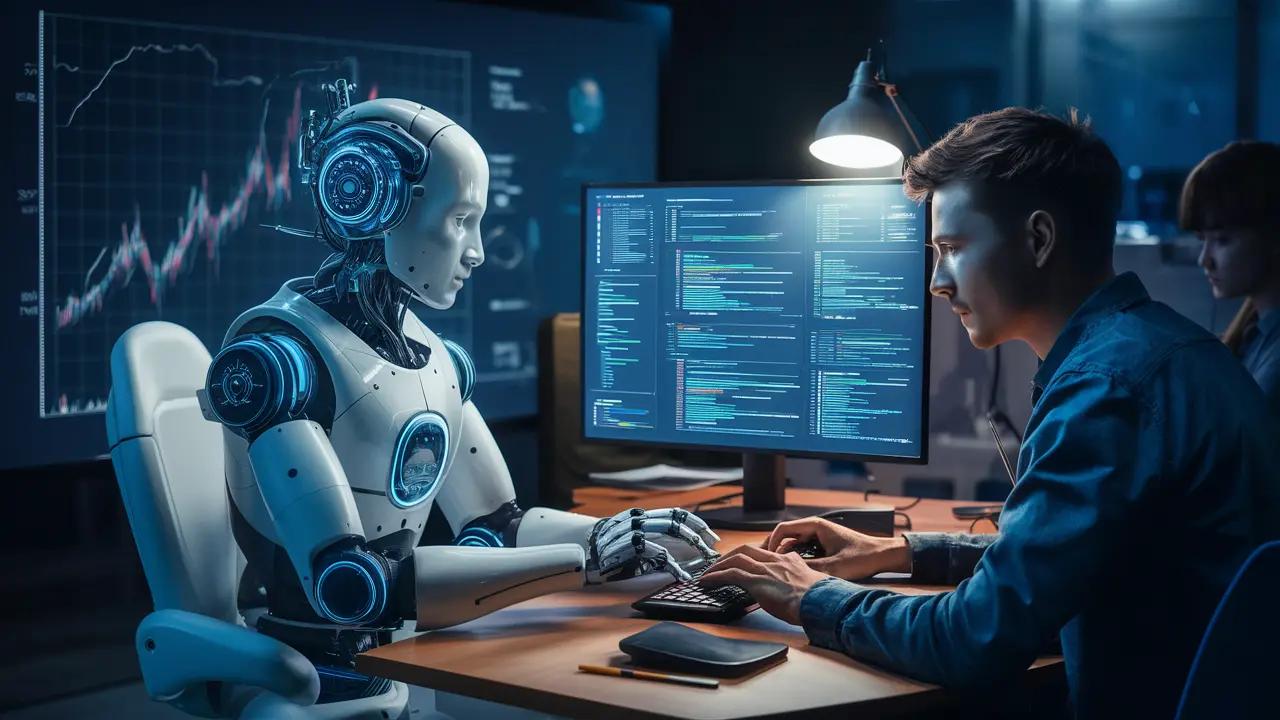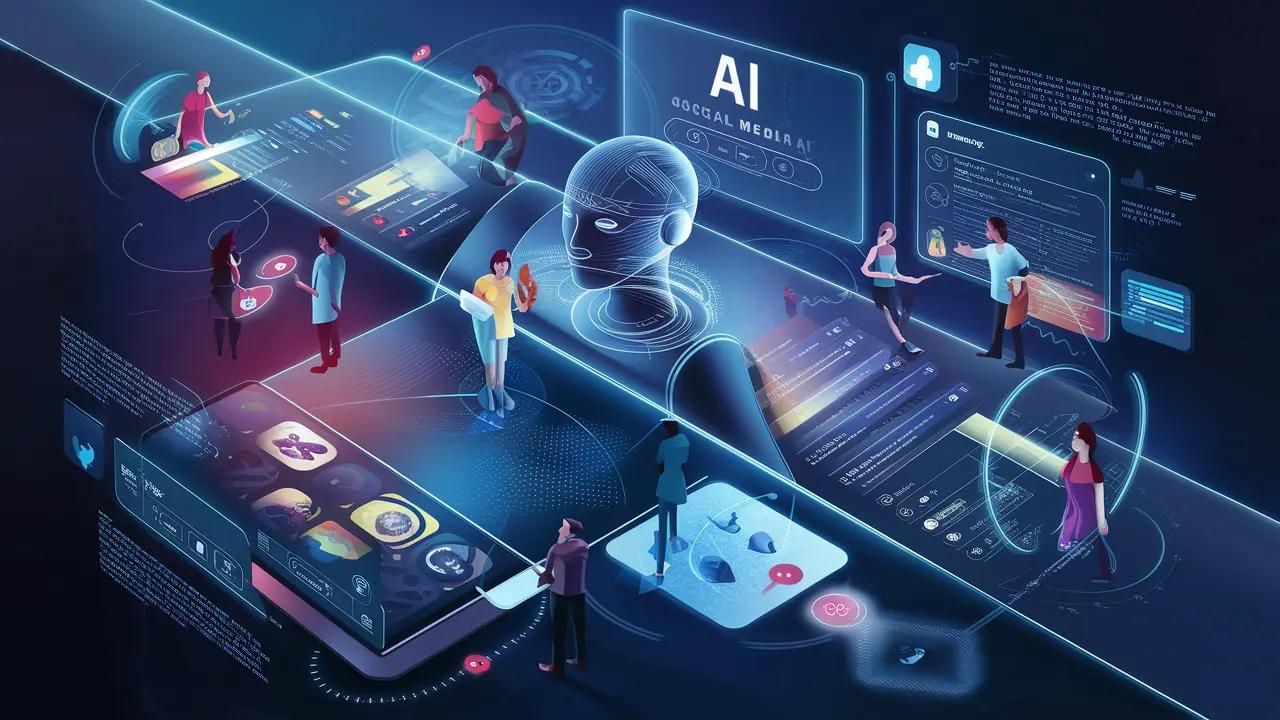May 28, 2024|6 min reading
Will AI Replace Programmers and Software Engineers? Future of Coding Jobs

Advancements in artificial intelligence (AI) are revolutionizing various fields, including software development. With AI technologies like generative AI (GenAI) gaining traction, many wonder if AI could eventually replace programmers and software engineers. This blog delves into the potential of AI in the programming world, examining its benefits, limitations, and the future of coding jobs.
How AI is Impacting Programming and Software Engineering
AI is making significant strides in automating various programming tasks, which is transforming the way programmers and software engineers work. Here are some key areas where AI is making an impact:
Automation
AI excels at automating repetitive tasks, enhancing efficiency and productivity. Tasks such as code generation, refactoring, and optimization can be partially handled by AI, allowing developers to focus on more complex aspects of software development.
Writing Assistance
AI tools can assist in writing code in common programming languages like Python, Java, and C++. These tools can provide code snippets, explanations, and even help format code comments, making the coding process smoother and faster.
Bug Detection and Fixing
AI can identify bugs in the code and suggest fixes, which helps in maintaining code quality and reducing the time spent on debugging. This is particularly useful for spotting common errors and ensuring code adheres to best practices.
Project Forecasting
AI can analyze historical data to predict the time required for various programming tasks, aiding in project management and timeline estimation. This allows for better planning and resource allocation.
AI Limitations in Programming
Despite its benefits, AI has several limitations that prevent it from fully replacing human programmers and software engineers:
Lack of Innovation
AI lacks the ability to think critically and generate new ideas. It can only replicate existing patterns based on the data it has been trained on. Human creativity and problem-solving skills remain irreplaceable in developing innovative solutions.
Inaccurate Code
AI can produce inaccurate code, especially with complex requests. These "hallucinations" require human oversight to ensure the accuracy and reliability of the code.
Security Risks
AI systems may store user inputs and data, posing potential security risks. Understanding the data storage and usage policies of AI tools is crucial to prevent unauthorized access and data breaches.
Copyright and Intellectual Property Concerns
AI might inadvertently use copyrighted data from other users, leading to potential legal issues. Ensuring that AI tools are trained on publicly available or licensed data is essential to avoid infringement.
When Will AI Replace Programmers?
AI is not yet capable of replacing programmers entirely, and it may take a considerable amount of time before it reaches that level of sophistication. Human intervention is still essential in overseeing AI-driven tasks, especially in critical sectors like healthcare, finance, and defense.
Human Comfort and Trust
For AI to replace programmers, there needs to be a high level of trust in AI's capabilities to handle sensitive and complex tasks. Society must be comfortable relying on AI for tasks that impact public safety and security.
Human Role in AI Development
Programmers and software engineers play a vital role in developing and refining AI technologies. Even as AI advances, human expertise will be necessary to guide and improve these systems.
Future-Proofing Your Programming Career
As AI becomes more integrated into programming workflows, it is essential for programmers to adapt and expand their skill sets. Here are some ways to stay relevant in the evolving landscape:
Learning AI and Machine Learning
Understanding AI and machine learning concepts will be invaluable. Courses and certifications in these areas can provide the knowledge needed to leverage AI tools effectively.
Developing AI Ethics Knowledge
With the growing use of AI, understanding ethical considerations and best practices is crucial. This includes ensuring data privacy, preventing bias, and maintaining transparency in AI systems.
Mastering Prompt Engineering
Prompt engineering involves crafting inputs that guide AI tools to produce desired outputs. This skill is increasingly important as it enhances the effectiveness of AI in programming tasks.
Conclusion
While AI is transforming the field of programming and software engineering, it is unlikely to replace human programmers entirely in the near future. Instead, AI serves as a powerful tool that can augment human capabilities, making coding more efficient and error-free. By continuously learning and adapting to new technologies, programmers can future-proof their careers and stay ahead in this rapidly evolving field.
Explore courses on Coursera to enhance your AI skills and stay competitive in the ever-changing landscape of software development.
Explore more

Unlocking the Mind: How AI Reconstructs Thoughts with Medical Imaging
Discover how combining medical imaging and diffusion models can reconstruct images of thoughts. Explore the fascinating ...

NVIDIA: Leading the AI Revolution
Discover how NVIDIA is pioneering the AI revolution, transforming industries with advanced GPU technology and ethical AI...

AI in Social Media: Enhancing User Experience and Addressing Challenges
Explore how AI is transforming social media by enhancing user experience, personalizing content, and addressing challeng...
